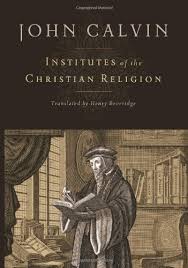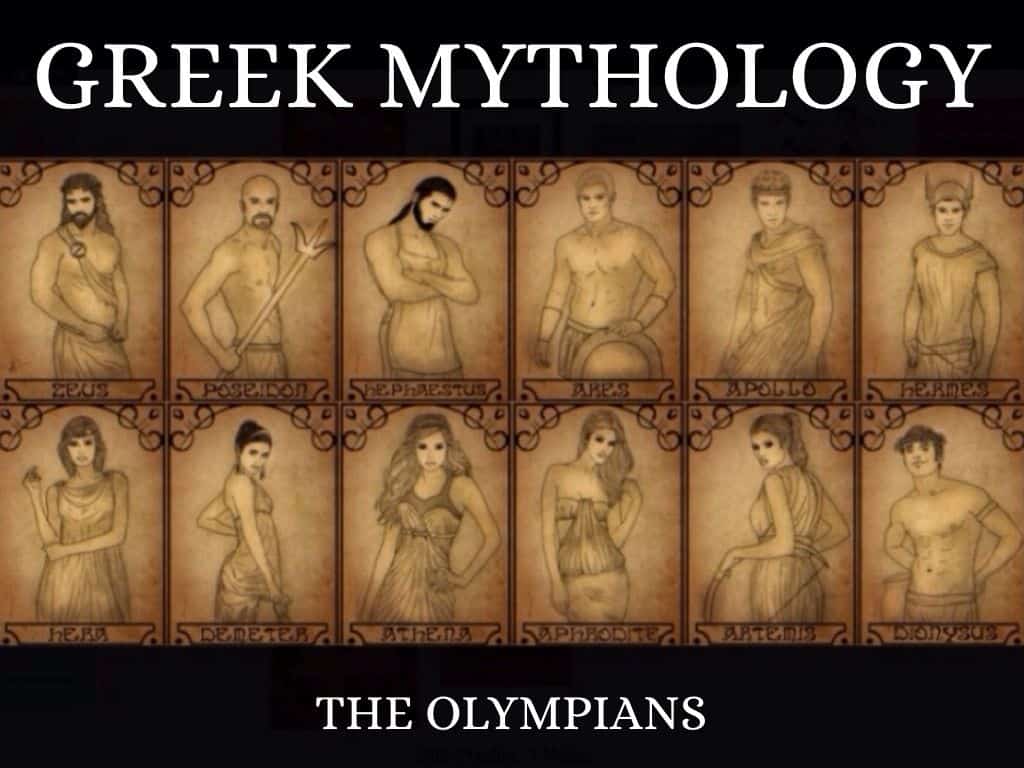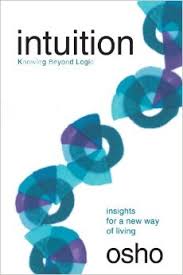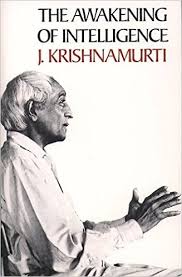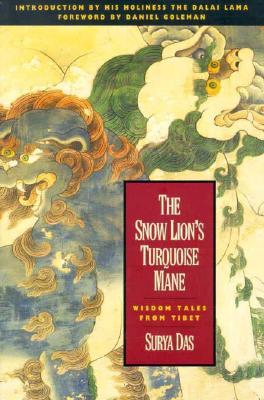Table of Contents
1) Diamond Sutra or Prajna-Paramita – William Gemmel
amazon Diamond Sutra or Prajna-Paramita – William Gemmel reviews
Introduction
The “Diamond Sutra”, also named the “Vajracchedikā Prajñāpāramitā Sūtra”, is one of the essential texts in Mahayana Buddhism, known for its profound teachings on emptiness (śūnyatā), wisdom (prajñā), and the nature of reality. The text is believed to have originated in India sometime during the 1st century CE, while translated into Chinese by scholar Kumarajiva in the 5th century CE. The Diamond Sutra is a cornerstone of Buddhist literature, and this review seeks to illuminate the essence, format, important teachings, impact, and continuing relevance of the Diamond Sutra in spiritual practice and philosophical discourse nowadays.
Essence of the Diamond Sutra
The Diamond Sutra is famous for its exquisite brevity and shattering profundity concerning the idea of emptiness (śūnyatā). From the very outset, the Sutra questions established notions of reality and selfhood, encouraging practitioners to go beyond this kind of dualistic thinking and grasp the interdependent, impermanent nature of all phenomena. The name “Diamond Sutra” (Vajracchedikā Prajñāpāramitā Sūtra) itself implies the everlasting and luminating feature of wisdom (prajñā) cutting through ignorance and deception.
Structure and Format
The Diamond Sutra consists of thirty-two chapters, each presenting a dialogue between the Buddha and his disciple Subhuti. The text can be described as a discourse where Subhuti asks questions about the nature of reality and what it means to get enlightened, and the Buddha provides the answers with teachings that defy the standard understanding. This discussion unfolds within a narrative setting in which the Buddha delivers the teaching to an assembly of monks, bodhisattvas, and celestial beings.
Core Messages
Emptiness (śūnyatā)
The core teaching of the Diamond Sutra is concerned with the idea of emptiness (śūnyatā), which should be distinguished from complete nothingness; it characterizes all phenomena as lacking inherent independent existence. In the Sutra, it is taught that all phenomena arise dependently without an identity that is fixed and permanent. Realizing that all phenomena are devoid of such fixed, permanent identity slowly helps the practitioner to view and regard reality without much clinging to rigid concepts and attachments, and to depart from suffering, admitting the interconnectedness of all being.
Non-attachment and Liberative Wisdom
Through non-attached mental construction and egoic identification, the Diamond Sutra cultivates liberative wisdom (prajñā). Being instructed by the Buddha, both Subhuti and the assembly are told to relinquish all ideas of self, all ideas of phenomena, and even all ideas about these teachings as being ultimate truths. This extremely radical teaching breaks the practitioners free from the fetters of all conceptual limitations, opening them up to the unlimited possibility of their true nature.
Kind-hearten Collaboration
Despite the sutra’s teachings of emptiness and non-attachment, the Diamond Sutra also emphasizes the importance of kind-hearted collaboration (karuṇā) in the world. The Buddha instructs bodhisattvas and practitioners alike on the kind and altruistic means to interact with the world. The compassionate act emerges not against emptiness but as its natural expression, embodying the Bodhisattva path to aid all sentient beings.
Impact and Relevance
Impact on Buddhist Philosophy
The Diamond Sutra is among the major seminal texts on Mahayana Buddhist philosophy, with special emphasis on emptiness and the Middle Way (madhyamā pratipad). Non-duality and the interdependence of all phenomena is a theme that has stimulated many generations of scholars, practitioners, and philosophers to consider the nature of reality and consciousness outside the conventional standpoints.
Meditation and Similar Practices
Opportunities to engage with the Diamond Sutra meditatively and contemplatively are important for furthering practitioners’ understanding of emptiness and the development of insight (vipassanā). Meditative reflection on the teachings of the sutra grants an experiential understanding of mind and perception as being impermanent and interdependent, yielding insight and facilitating awakening.
Cross-cultural Impact
The Diamond Sutra has been translated into many languages, such as Chinese, Tibetan, Korean, and Japanese, which has contributed to its being spread across Asia and beyond. It has entered the foreign culture and philosophical traditions and influenced the development of East Asian Buddhism as a synthesis with the indigenous spiritual traditions.
Current Practical Applications
Psychology and Well-Being
In current applications of psychology and psychotherapy, the proportional factors underlying the Diamond Sutra teachings on emptiness and non-attachment have been carefully considered. Aspects such as letting go of fixed identities, letting go of attachments to reduce suffering, and arising with qualities of impermanence fall into mindfulness approaches toward mental health and well-being.
Environmental Concerns
The emphasis of the Diamond Sutra on the interconnectedness of beings and the impermanence of all phenomena has engaged present discussions on environmental ethics and sustainability. This teaching calls for a paradigm considering humanity’s interdependence with the natural environment and encourages a sense of ecological responsibility and respect for biodiversity.
The Diamond Sutra urges its followers to combat social injustices and strengthen human rights with a moral compass of compassionate engagement. It encourages altruism and ethical behavior so that individuals and communities can share, without regard to culture, religion, or social status, in actions that will benefit and inspire the welfare and happiness of others.
Conclusion
In conclusion, the Diamond Sutra or Vajracchedikā Prajñāpāramitā-Sūtra is a living work of Buddhist literature forever, providing vast insight into the nature of reality, consciousness, and liberation. Its messages of emptiness, non-attachment, and compassionate engagement still stimulate the hearts and minds of spiritual seekers, scholars, and practitioners all over the world. The meaning of the sutra reaches far beyond the borders of religion into an arena of philosophical reflection, contemplative exercises, and ethical principles in the modern-day world. If anything, the survival of wisdom characterizes the Diamond Sutra, allowing its own self to challenge one to probe the inner-most closet of their own consciousness to awaken to the interdependency of existence, thus lighting the way to insight and peace.
where can you get a Diamond Sutra or Prajna-Paramita – William Gemmel online
Diamond Sutra or Prajna-Paramita: Buy it now
2) Biblical Christianity – John Calvin
amazon Biblical Christianity – John Calvin reviews
Introduction
John Calvin (1509-1564) was one of the leading French theologians and pastors during the Protestant Reformation. His magnum opus “Institutes of the Christian Religion” contains a systematic theology that has been a very significant influence on Protestant Christianity, especially the Reformed tradition. This theoretical appraisal will therefore venture to discuss Calvin’s theological scheme, his thoughts on biblical Christianity, and the legacy of his thought.
Calvin’s “Institutes of the Christian Religion”
In 1536, Calvin’s “Institutes” first saw the light of day and was revised repeatedly until it reached its final version in 1559. The entire text is divided into four separate books, which present Calvin’s theological doctrines in systematic order:
Knowledge of God the Creator: Calvin begins with the knowledge of God and the understanding that God exists. The knowledge of God constitutes an intuitive recognition among all men, so it has a natural theology built upon creation.
Knowledge of God the Redeemer in Christ: This book discusses Christ as the mediator between God and humanity, with issues related to the person and work of Christ, justification by faith, and the sacraments.
The Way in Which We Receive the Grace of Christ: Calvin elaborates on the role of the Holy Spirit in applying to believers the benefits of Christ’s redemption and touches upon faith, prayer, and Christian liberty.
The External Means or Aids by Which God Invites Us into the Society of Christ and Holds Us Therein: The last book encompasses the church, sacraments, civil government, and the consideration of the relationship of church and state.
Central Themes in Calvin’s Theology
Sovereignty of God
The sovereignty of God is a major doctrine in Calvin’s theology, which stresses the total power and dominion of God over his creation. Calvin taught that the sovereignty of God includes all events in every aspect of life, from salvation to providence to human history. This offset emphasizes God controlling the universe according to his will and purpose, and that gives the believers comfort and assurance.
Predestination and Election
Calvin taught that God, before the foundation of the world, singled out certain persons for salvation (the elect) in His sovereign will, without factor of merit or foreseen faith on their part. This doctrine celebrates God’s initiative in salvation and has been a huge bone of contention through the ages.
Scripture as Authority
Calvin also affirmed the authority of Scripture (sola scriptura) as the only source of divine revelation and the final authority in faith and practice. He affirmed the clarity of its teaching and asserted that it must be interpreted by the testimony of the Holy Spirit and in the context of the Christian community.
Justification by Faith Alone
Justification by faith alone (sola fide) stood for Calvin in utmost centrality, as it did for Luther, to biblical Christianity. He claimed that a believer is justified (declared righteous before God) through faith alone in the atoning sacrifice of Christ on the cross and independent of any human works or merit.
Impact and Legacy
Worship Reformation and Church Governance
Calvin’s theology influenced church reforms, especially in Geneva, which gave birth to a prototype of Reformed worship and church governance. Preaching, the singing of congregational hymns, and following the regulative principle for worship where worship is simply governed by what is contained in Scripture were some aspects that shaped the worship life of Protestants throughout Europe and beyond.
The Travel of Reformed Thinking
Calvin’s theological writings, among which the “Institutes” are foremost, were read and translated into a number of languages, aiding the promotion of Reformed theology across Europe and beyond. The theological orientation he set forth will influence the history of Reformed churches and traditions that came to include Presbyterianism, Congregationalism, and Reformed Baptists.
Influence on Western Thought
In addition to theology and church governance, Calvin’s theory of the sovereignty of God, human depravity, and the function of government also fed into wider developments in Western thought. His teachings impacted discussions in ethics, politics, law, and social organization, thus marking a long-lasting imprint on Western intellectual history.
Criticisms and Controversies
Predestination
Calvin’s doctrine of predestination has generated considerable criticism and controversy within and beyond the bounds of Reformed theology. Critics assert that it paints God as arbitrary and negates human freedom and responsibility. Others critique Calvin’s exegesis of biblical passages pertinent to predestination and offer alternative conceptions of divine sovereignty and human choice.
Ecclesiastic authority
Critics of Calvin’s love of church discipline and the power of elders to mandate congregation activities often saw it as a form of imperialism where all boundary lines became too rigid in terms of moral rules. In other words, in this ecclesiology lies the possibility of restricting individual freedoms and diversity within congregations.
Conclusion
In conclusion, John Calvin’s theological assertions, as sketched out in his “Institutes of the Christian Religion,” plunge into a sea of Protestant Christianity and Western intellectual thought. The people’s faith in the absolute authority of God, the authority of Scripture, and justification by faith alone continues to stand at the heart of Reformed traditions and even beyond. Calvin’s teachings have led to both theological debates and dissents; however, in fact, his robust legacy is found in the systematic exposition of biblical Christianity as well as in its development toward Protestant and non – paleo-world views. His grasp on the nature of God, the human, and salvation invites reflection and challenges inquiry throughout the 21st century and beyond.
where can you get a Biblical Christianity – John Calvin online
Biblical Christianity (Great Christian Classics): Buy it now
3) Greek mythology – Ross Tanner
amazon Greek mythology – Ross Tanner reviews
Introduction
Greek mythology, alternately described as a long tradition of gods, demigods, mortals, or mythical creatures, is a topic that has remained in undying interest for centuries. These myths that originate from the culture and religion of ancient Greece have served to entertain but also try to make sense of the natural world around us, human psychology, and the intricacies of life itself. This review will focus on how Greek mythology resonates with the contemporary crowd and its importance, discussing some of the major themes, figures, its influence on society, and its relevance in current literature and popular culture.
Exploring the Pantheon of Gods and Goddesses
Greek mythology is filled with diverse pantheons of gods and goddesses that possess unique powers, attributes, and personalities. Great Zeus, king of the gods, at the head of Mount Olympus represents authority and thunder, while his wife Hera is the goddess in charge of marriage and family. Athene embodies wisdom and warfare with an emphasis on strategic prowess and civil governance; Aphrodite, conversely, with her charm and fervor, is the goddess of sensual love and beauty.
The Mythical Heroes And Their Quests
Greek mythical heroes, from Hercules and Perseus to Odysseus, took their various mythical quests converging on a great number of challenges and confrontations with mythical opponents. Hercules, the strongest amongst men, represented endurance and the true spirit of heroism in overcoming twelve labors. Perseus, wielding his shield and sword with great skill, went after the gorgon Medusa at great risk, whereas Odysseus undertook a perilous journey back home from the Trojan War, thereby demonstrating cunning and perseverance in the face of obstacles laid by the disapproving gods.
Themes Of Fate, Hubris, And Tragedy
Greek mythology studies the timeless themes that have struck a chord with people in different cultures and eras. The issue of fate (moira) teaches the inevitability of destiny and the consequences of one’s actions. The excessiveness of pride or arrogance, hubris, is the very bane of downfall and serves as a grave reminder never to overreach one’s ambitions. Tragic heroes like Oedipus and Medea are engaged in a battle between their inner being and outside force, showing that in Greek society, destiny and morality are entangled at the very heart of ethical dilemmas.
Cultural Impact And Influence
Prominent among influences, Greek myths have been greatly shaped into Western civilization-art, literature, philosophy, even political thought. In literature, the mythological tales were drawn upon by ancient Greek playwrights like Aeschylus, Sophocles, and Euripides to examine human nature and moral dilemmas in their tragedies and comedies. Concerning the same myths, philosophers like Plato and Aristotle addressed ethical concerns and metaphysical ideas through the interpretation of myth.
Renaissance Revival And Modern Adaptations
Like the Renaissance action that started it again, the art and knowledge spawned many renewals of Greek mythology, as scholars found ancient writings and motifs and began to reassess classical themes in painting, sculpture, and literature. In the present day, literature, films, and cultural aspects, due to popular appeal, draw adaptations from Greek mythology. Such authors as Rick Riordan give new life to the ancient myths for an audience of young adults, while filmmakers in Hollywood exploit the themes of mythology for big bucks in their blockbusters like Clash of the Titans and Wonder Woman.
Psychological And Archetypal Perspectives
Greek mythology has found relevance to the human psyche as explored by psychologists, including Carl Jung, who identified archetypal motifs and symbols that strike a chord in disparate cultures. In the Jungian schools of thought, mythological figures such as the hero and the shadow are a universal representation of individuation and psychological metamorphosis. Mythology gives insight into human behaviors and feelings and the collective unconscious, allowing a better understanding of personal identity and cultural legacy.
Relevance today and educational value
Greek mythology-in education as a portal for opening interdisciplinary thinking, critical thinking, and creativity and cultural literacy. It leads students into themes of heroism, morality, humanity, and society in ancient Greece and how they make their presence felt in later times through myth. Consideration of mythological narrative encourages empathy and perspective-taking: students learn about subjects that can be discussed beyond time and place.
Conclusion
Greek mythology is one of those everlasting repositories that will contain storytelling and words of wisdom and cultural heritage through the ages. It is timeless because it contains universal themes, characters, and moral dilemmas that touch all ages of mankind. This will surely stand as a testimony to human imagination and creativity, which continues to evolve and adapt Greek mythology, offering evolving interpretation and insight about our human experience in the cosmos.
This is what the study of Greek mythology does: it enriches our understanding of history, theatre literature, psychology, and cultural identity; in this respect, it forms one of the great cornerstones of Western civilization and the power eternal of myth and storytelling.
where can you get a Greek mythology – Ross Tanner online
Greek Mythology: Captivating Stories of the Ancient Olympians and Titans (Heroes and Gods, Ancient Myths): Buy it now
4) Intuition: Knowing Beyond Logic – Osho
amazon Intuition: Knowing Beyond Logic – Osho reviews
Introduction
“Intuition: Knowing Beyond Logic” by Osho is rather an exposition into the very nature and value of intuition as a higher faculty of knowing that goes beyond ordinary logical and ideal reasoning. This book pertains to the works of Osho, a world’s highly renowned spiritual teacher and philosopher, wherein the great mysteries of intuitive knowledge have been extensively dealt with directly and practically through various experiences and wise words to the reader so that they can understand and make use of this innate ability for deeper clarity, wisdom, and processing towards own spiritual growth.
Understanding Intuition
Intuition, by Osho’s definition, is direct knowing or perception which comes forth spontaneously from a deeper consciousness that is outside the rational mind. Intuition is not the mechanical workings of logical thinking, which analizes and deduces; it would borrow internal intellectual processes in order to arrive at truths, mostly hidden or blurred for most. He sums up with this: intuition is not a part of mystic phenomena reserved for a few, but rather all actually have an inborn intuitive capacity that awaits waking and further cultivation.
The Role of Meditation
Meditation stands as the basis of Osho’s teachings regarding intuition. To him, meditation brings the mind to stillness while shutting down the clamor of thought so that one may be able to listen to the softest whispers of intuition. When the meditator thus develops that kind of sensitivity for the inner guidance and intuition, he easily makes decisions that most closely resemble the person’s deepest truths and desires.
Conditions of Trust and Awareness
Thus trust in the intuition was something that one needed to learn from the remarks of Osho, inasmuch as society has been favoring much of the logic and reason over the intuitive insights as well as that developing doubt into near negation of intuitive nudges. Osho would say to develop mindfulness as being able to discern a difference between real intuition and wishful thinking or fear impulse.
Intuition in Everyday Life
In fact, Osho enriches the reading of this book with a few exercises that could help readers take intuition into their daily living-from career decisions into relationships and even imagining creativity, teaching that intuition is a solid guide for living. Imposing in uncertainties and relinquishing Juhari would educate the reader to open up to spontaneity and flow in taking intuition to experiences.
Beyond Dualistic Thinking
Osho does not conform to the paradigm of dualistic thinking that often severs mind from heart, reason from intuition. He advocates that the wisdom which really imparts perspective is that which emerges from the harmonious integration of intellect and intuition-the holistic approach to understanding oneself and one’s world. Access to deeper truths and insights goes beyond those that distinguish binary thinking but face evidence ofirrefutable distinctions in one’s mind.
Criticism and Controversies
Critics of Osho’s teachings on intuition may raise questions concerning the subjectivity of intuitive insights, raising the prospect for misjudgment or outright delusion. Some critics might suggest, however, that the very lack of parameterization or scientific validation of intuition renders it mostly susceptible to prejudgment and personal biases. Those that advocate for Osho’s teachings regard intuition as one of the most delicate tools of personal and spiritual growth and intuitive decision-making.
Conclusion
“Intuition: Knowing Beyond Logic” by Osho is an insightful piece that probes into the powers and probable functions of intuition as a truly transforming agent in human life. In his commentary and practical suggestions, Osho himself invites the reader to embrace intuition as a natural and extremely necessary aspect of human consciousness. It is those who realize and cultivate awareness, trust, and being-in-the-present that can truly utilize the inner wisdom of intuition as a guide in dealing with hardships of life with clarity, uniqueness, and inner strength.
Summarily, “Intuition: Knowing Beyond Logic” proves to be a message for the times, awakening the intuitive wisdom of the dormant kernel within every human being, awaiting activation and acceptance. Osho’s teachings prompt the readers to traverse into the unknown realms of intuition and put logic and reasoning aside, awakening thereby the call for their unique path to self-discovery and spiritual evolvement at the hands of this transforming intuitive power.
where can you get a Intuition: Knowing Beyond Logic – Osho online
Intuition: Knowing Beyond Logic: Buy it now
5) The Awakening of Intelligence – Jiddu Krishnamurti
amazon The Awakening of Intelligence – Jiddu Krishnamurti reviews
Introduction
Published in 1973, Jiddu Krishnamurti’s highly insightful treatise “The Awakening of Intelligence” seeks the heart of human consciousness, perception, and the true meaning of intelligence beyond mere intellect. The book philosophically brings together teachings and dialogues that Krishnamurti engaged in during public talks and dialogues around the world, emphasizing his highly radical and unorthodox stance in matters of spirituality, self-understanding, and challenging conventional opinions, beckoning readers on the path of self-inquiry and inner transformation. Considered herein are the themes, insights, and influence of “The Awakening of Intelligence.”
Biography of Jiddu Krishnamurti
Jiddu Krishnamurti (1895-1986) was a philosopher, speaker, and writer who rose to worldwide prominence for his teachings on the philosophical and psychological issues related to man, his self-discovery, and the nature of truth. Born in India, from a young age, he was groomed by the Theosophical Society to manifest as a World Teacher, regarded to be the latest incarnation of spiritual enlightenment. In 1929, however, he disbanded the organization dedicated to him and, renouncing the messiahship, proclaimed that “Truth is a pathless land,” thus advocating an open-minded inquiry and understanding.
Overview of “The Awakening of Intelligence”
“The Awakening of Intelligence” presents different sections looking into various dimensions of human existence and consciousness, with Krishnamurti’s teachings emphasizing self-awareness, freedom from conditionings, and the discovery of true intelligence that transcends cultural, religious, and psychological boundaries. The book constitutes a series of dialogues and discussions, one concerning the fundamental questions of life with Krishnamurti, perception, relationship, and the nature of reality.
Key Themes Explored
Self-Knowledge and Awareness
At the heart of Krishnamurti’s teaching is self-knowledge and awareness. He says that its true intelligence actually arises from knowing oneself deeply- one’s own thoughts, feelings, fears, and desires. And it is this self-inquiry and self-observation without any identification that shows the conditioned patterns of the mind and helps a person free himself from psychological bondage.
Freedom From Conditioning
Krishnamurti puts forth the view that man’s natural conditioning is no less than psychological in nature, imposed by society, culture, tradition, and age-old proverbs, urging people to question any set of beliefs or ideologies they have inherited from their parents or any authority. For him, this radical freedom arises from seeing things as they are and not bathed in distortion or bias. Krishnamurti emphasizes that freedom, of which he speaks, becomes a reality when the mind is freed from all conditioning based on experience in the past.
Relationship and Love
Human relationships are therefore analysed by Krishnamurti by emphasizing the aspect of love and compassion in the making of harmony. He argues that true love has nothing to do with attachment, possessiveness, and dependence, but is based on a profound sense of empathy, understanding, and mutual respect. Thus, Krishnamurti continually challenges conventional perceptions of love so that the reader may discover the exciting world of love, a world of transformation beyond personal needs and egocentric motives.
Perception and Reality
Krishnamurti proposes that the perception and nature of reality need to be questioned by the readers. He said that the mind, through its conditioning and prejudices, plays tricks upon the reality and creates psychological divisions and conflicts. True perception, according to Krishnamurti, is a state of pure observation, wherein thought does not interfere and it enables a being to perceive the interconnectedness of all existence and the beauty of life in its becoming.
Practical Applications and Insights
Practical insights and exercises for self-inquiry and mindfulness are offered in “The Awakening of Intelligence.” Krishnamurti asks the readers to listen very attentively, to observe silently, and to meditate in order to increase the clarity of their minds and inner peace. The more one practices mindfulness in day-to-day events, the more aware one becomes of one’s thinking, feelings, and interaction toward another, thereby enriching their self-awareness and spiritual awakening.
Impact and Influence
Krishnamurti’s teachings in “The Awakening of Intelligence” profoundly touched the hearts of readers, scholars, and spiritual seekers in many parts of the world. His emphases on self-inquiry, freedom from conditioning, and pursuit of true intelligence resonate with those on their own odyssey toward realizing authentic selfhood and inner transformation. Krishnamurti’s philosophical insights continue to promote dialogue and reflection in distinct fields of study such as psychology, philosophy, education, and spirituality.
Criticisms and Controversies
Critics of Krishnamurti may contend that his emphasis on freedom and self-investigation provides scant instruction on negotiating everyday challenges and responsibilities. Philosophers may also raise questions about how learnable Krishnamurti’s ideas are and with what level of specialization; it could be argued that these concepts might be inaccessible to a person of a different culture or social background. However, those who support Krishnamurti hold that his teachings stress taking charge of one own’s fate, mindful awareness, and the quest for truth beyond conventions.
Conclusion
In conclusion, “The Awakening of Intelligence” by Jiddu Krishnamurti is a deep inquiry into the nature of human consciousness, perception, and pursuit of true intelligence. With his dialogues and teachings, Krishnamurti provokes his readers to question their conditioned thoughts, be self-aware in the present, and awaken to life’s interdependence.Krishnamurti inspires one’s journey of discovery into the self and spiritual awakening, combining mindfulness with love, the release from psychological conditioning, and the utmost transformative significance.
Seeking clarity, tranquillity, and genuine self-realization in a complicated, fast-changing world, “The Awakening of Intelligence” will remain a guide for all seekers. These teachings ask one to throw off the veil of immediacy to embrace uncertainty, intensively explore their consciousness, and uncover vivid insight far richer than what is available through common perception and intellect. An everlasting legacy of Krishnamurti, the book lights the path of true intelligence and spiritual freedom today.
where can you get a The Awakening of Intelligence – Jiddu Krishnamurti online
The Awakening of Intelligence: Buy it now
6) The Snow Lion’s Turquoise Mane – Surya Das
amazon The Snow Lion’s Turquoise Mane – Surya Das reviews
From Sakyamuni to the present-day Dalai Lama, these possible colorful accounts tell short stories that have given life to masters. This tale stems from many faiths, especially in a way indicating to the reader that Buddhism’s philosophy comprehends all phenomena of mind as multiple variables of self-consciousness across species as non-material. Beginningless and eternal by nature, they never put off the path of humanity; however arduous the task of recognizing this has been, it is still more arduous to realize, as was purported by this story.
where can you get a The Snow Lion’s Turquoise Mane – Surya Das online
The Snow Lion’s Turquoise Mane: Buy it now

